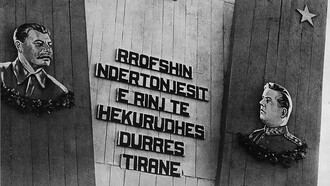The saddest aspect of life right now is that science gathers knowledge faster than society gathers wisdom.
(Isaac Asimov)
In a world where triumphs cannibalize each other and truths are as flexible as playdough, what's sorely missing is a glimpse of viable meaning. Everyone suspects it's there, lurking, yet few have the map to find it. In the scramble for relevance, doers, specialists, daredevils, and autocrats vie in a redundant showcase for the spotlight, spawning hivemind swarms from vacuous tactics. Stripped of accolades, a philosopher emerges—not to guard but to challenge. They traverse the intellectual void, driven by a quest that mocks conformity. Their journey defies mere data, seeking instead a dialogue with complexity. Amidst flux, they embody raw potential, rejecting labels for a deeper engagement. Through a cybernetic lens, they dare you: co-create our shared destiny, transcend, engage.
In the era of social media, AI, and Neuralink experiments—endeavors that wire together human brains, posing risks of diluting individual subjectivity and shifting control from self-orientation to external oversight—Kant's imperative for unwavering honesty, though still pertinent, demands a nuanced recalibration. This commitment to acting upon one's most refined understanding must adeptly traverse the intricate dynamics of digital communication and neural enhancement technologies. Anchored in Kantian ethics and promoting a Socratic dialogue, our philosophical approach must adapt to meet the distinctive challenges presented by mediated communication and the possible erosion of autonomy.
This philosophical stance transcends the mere exchange of words tethered to logos-driven linear dialectics; it seeks to uphold the real, intrinsic autonomy of subjects exploring their paths in absolute parallelism. The concern extends beyond the superficial interaction of media channels that might not facilitate telepathy or genuine connectivity, which risks diluting individual autonomy. Instead, it aims at deepening connections towards a form of true intersubjectivity.
Does such a philosopher truly exist? What can they offer us as individuals and society at large? Indeed, such philosophers do exist, but they are best identified and nurtured in their potentiality, even if the full maturity of their evidence only becomes apparent in later life. Finding them necessitates a diligent search, for they seldom publish in committee-run journals or resort to personal blogs as an echo chamber. They stand apart from the relentless churn of marketing or the allure of influencer status, seeking not the recognition of a crowd mesmerized by swarm intelligence or the trivialization of complex subjects. Instead, their quest is to let the genuine intelligence of individual essence make its mark on the world, unencumbered and unobstructed. But we need them, thus it becomes the duty of every intellectually inclined and empathetically sensitive intellectual to seek out such indications, to be vigilant and appreciative, and to support and interact instead of leaving it to organizations and power-driven patrons for usable ideologies and their organizations.
Do you see yourself as such a philosopher? In today's landscape, where the dissemination of ideas is as instantaneous as it is pervasive, the act of publishing is fraught with the dual peril of appropriation and distortion. It's an inescapable conundrum, where the greater misfortune isn't the borrowing of ideas but their misrepresentation. Nonetheless, the intrinsic consistency of your philosophical approach offers a bulwark against such challenges. Those who attempt to co-opt fragments of your thought often find themselves adrift, unable to synthesize the comprehensive scope of your insights. This very authenticity provides a distinct advantage: a more nuanced and informed engagement with the world.
In the annals of thought, not only have the philosophies of exceptionally zeitgeist-tuned and practically impactful thinkers like Marx, Nietzsche, or even Adam Smith undergone misinterpretation and distortion, but so too have the theories of universally recognized intellectuals such as Kant, Hegel, and John Stuart Mill. Across centuries, their profound insights have often been twisted, diluted, or outright perverted. Yet, in this modern epoch, defined by its swift flow of information, you are bestowed with an unparalleled capacity to confront and amend the most egregious and apparent misinterpretations directly. This capability endows you with an agility in the intellectual realm that was once beyond reach, enabling a dynamic and responsive engagement with the world of ideas.
The term philosophism has been employed in various contexts to denote an unfounded, misunderstood, degenerated, or improperly applied philosophy—a kind of pseudo-wisdom or speculative focus. Yet, against this backdrop of philosophism, your steadfast commitment to a philosophy grounded in systemic thinking and openness to complexity stands as a beacon of genuine intellectual pursuit, challenging both the superficial appropriation of ideas and the broader misapplications that have historically plagued philosophical discourse.
In this context, the philosopher’s role is not only to prevent the erosion of others’ informational foundation required for autonomous decision-making but also to navigate the distortion potential inherent in media-rich environments. The goal shifts from a linear exchange to fostering realms where subjects can pursue orientation and understanding without succumbing to the simplifications of digital dialogues. In every interaction, the dignity and rational capacity of individuals are safeguarded, steering clear of manipulative ends and embracing the complexity of genuine intersubjectivity in our technologically intertwined world.
What, then, constitutes philosophical meaning? It transcends mere common sense and is not an alignment towards the majority's distributed substitutes for truth in swarm intelligence modes or power-distorted validations of truth. It represents the orientation truth of a subject earnestly seeking the interconnectedness of potentialities. In environments where the ethos of philosophical intelligence is fully integrated and valued within the societal fabric, educational inspiration reaches such elevations that linear, complexity-reducing thinking—typical of swarm intelligence and formations like ideological communities centered around power without innate, subject-driven meaning production, whether totalitarian or sociocratic—becomes obsolete. This shift heralds a transformative era for society, transcending obsolete structures and approaches that have significantly impeded advancement and steering clear from the distortive dichotomies of left-right political ideologies.
A philosopher, in the truest sense, is not merely an individual who navigates through the complexities of existence with a keen intellect but also embodies a multifaceted set of criteria that sets them apart. Beyond the capacity for consistent, complexity-aware, and open-minded engagement with life's challenges, a philosopher’s approach is distinct in several critical aspects:
Firstly, their thinking is systemic, prioritizing connections over mere observation of phenomena. Unlike the traditional approach that tends to simplify and confine understanding within predefined concepts, their method is expansive, seeking to deconstruct and reconstruct knowledge in a manner that acknowledges and incorporates complexity. This systemic thinking allows for a more holistic grasp of the intricacies of life, ensuring that solutions are not merely reactive but preventive and genuinely innovative.
Secondly, this philosopher's mindset is inherently open to spontaneity and creativity, qualities that are not sidelined by their methodical and reflective nature. Instead, these attributes are integral to their way of engaging with the world, allowing for improvisation that is both thoughtful and responsive. Their approach to inquiries—whether responding to questions or articulating deep, written reflections—is always aligned with a profound sense of purpose and understanding.
These essential criteria further define the philosopher's role and relevance:
Systemic coherence: the philosopher's thought process transcends observational analysis of phenomena, which often results in conceptually precise yet complexity-reduced understanding. Instead, their thinking is rooted in a cybernetic-philosophical framework that embraces the human potential-oriented image and a complexity-open worldview. This approach does not seek to reduce the multifaceted nature of reality to flat, dialectical concepts but to appreciate and engage with its inherent complexity.
Human potential orientation: their philosophy is deeply humanistic, centered around the maximization of human potential. This orientation is critical in an age where technological advancements, while promising, also pose significant ethical and existential challenges. The philosopher's commitment to a human-centered approach ensures that technological progress is guided by values that uplift and enhance human well-being.
Proactive engagement: unlike the tactical thinking prevalent among insiders and practitioners, which often focuses on immediate problem-solving, the philosopher's strategy is preventive. They anticipate challenges and formulate responses that are not merely reactive but aim to avert potential issues before they arise. This forward-looking perspective is crucial in navigating the complexities introduced by digital and AI-driven changes.
In essence, the philosopher that the world needs today is one who combines systemic thinking with a commitment to human potential, creativity, and proactive engagement. Their role transcends traditional academic boundaries, offering insights that are not only intellectually rigorous but also deeply relevant to the challenges and opportunities of our times.
Embodying a multi-dimensional, systematically grounded philosophy of relations as one's life work naturally leads to mastering aphoristic expression. This evolution from initial implicit formulations, aimed at preserving a breadth of thought, refines into an eloquently light, informationally dense style marked by poetic finesse. Such an approach has no bounds in perfection yet remains unforced. I cultivate this aphoristic manner through microblogging and my Instagram projects like @tsvasman_sage, where my texts are often embraced by many aphorism pages. Even if fully comprehended, perhaps only by a global AI subject or the planetary brain in the spirit of Vernadsky's Noosphere in decades, it sparks moments of realization in contemporaries, illuminating their sense of meaning.
Like every piece I share here, this text is a product of inspiration, tracing the contours of life's complexities in pursuit of understanding. It does not purport to offer final answers or embody my definitive viewpoint; rather, it is an exploration, open to interpretation, and devoid of claims to absolute truth. My aim is not to garner accolades from those captivated by simplified consensus or swarm intelligence. Instead, I strive to champion the nuanced intelligence inherent in each individual, advocating for its unobstructed expression in our world. Your grasp of these ideas will be shaped by your own dedicated search for insight. Engaging with a range of sources will undoubtedly deepen your understanding and broaden your perspective.















